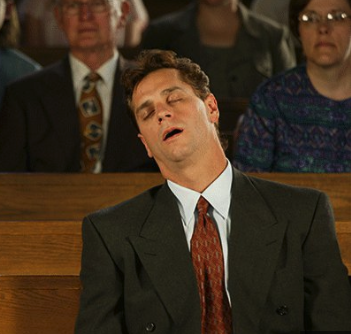A leading Catholic theologian has revealed a strong “lament” that has emerged from the “listening phase” of the Church’s global synodal process.
Catholics, it turns out, are desperate for their priests to preach better homilies.
…
Professor Rowlands is one of the few people to have read every single documented submitted to the synod office from the worldwide church as a result of the listening phase.
That is a pretty severe Lenten penance to have read every single one of them.
But one strong, universal theme that emerged from the listening phase was concern about the quality of sermons.
“The quality of homilies is a major, major universal feedback across the Church – people lamenting, either sermons that are just too hurriedly prepared or sermons that are too abstract and intellectual, or sermons that lack any kind of real meat and content to them.
“So there’s a kind of lament from across the world that we would like better homilies that genuinely feed us spiritually. Well that doesn’t require a policy change in Rome to make that happen.” Source
This is probably a lament across all times and space regarding homilies. This is a complaint that will never be remedied. We can not really expect a perfectly crafted homily that speaks to us for many reasons.
One thing to remember is that a homily that we might consider too abstract or not speaking directly to us might be exactly what another person needed to hear. Talking to others in my parish, I remember occasions where somebody is left dry by a homily I thought was fantastic on every level, preferring the style and content of another priest. A salutary reminder that it is not “all about us” and that we should be thankful for our priests, regardless.
It is too easy to sit back critiquing topics of homilies because it does not address your particular hobby horse, usually what you see as somebody else’s sins. Often we don’t want to be preached to, but confirmed in what we already accept. Priest also vary in personality, style, learning, level of insights, etc. We should accept this as long as the homilies are orthodox and seek to reduce our own barriers to what is being preached. I am not perfect in this myself. There are homilies where I zone out intellectually and I have to remind myself to take what nuggets I can.
Another problem is that we put too much onus on the importance of a homily. The average weekly Mass going Catholic will hear 52 plus a few days of other Solemnities during the year. If you expect that roughly 10 minutes during the week as being the full catechesis you need, you are expecting too much.
Some priests are going to be more effective homilists than others, and no amount of preparation and training will overcome. Writing to the Synod complaining about homilies is not going to move the needle.
Pope Benedict XVI wrote in his post-synodal apostolic exhortation Verbum Domini:
The homily is a means of bringing the scriptural message to life in a way that helps the faithful to realize that God’s word is present and at work in their everyday lives. It should lead to an understanding of the mystery being celebrated, serve as a summons to mission, and prepare the assembly for the profession of faith, the universal prayer and the Eucharistic liturgy.
Pope Benedict could deliver the Platonic form of a homily that meets these conditions, but how receptive are we if we hear a well-crafted homily on the day’s readings? Is it always the fault of the homilist if ten minutes later we have forgotten the message of the homily along with the day’s readings?
Besides, if you feel you are not being nourished spiritually from homilies, you are hearing—what are you doing to feed yourself spiritually? What efforts are you making regarding spiritual reading, Eucharistic Adoration, or finding devotions that help you?
One last point is that even when we hear a less than ideal homily, we are still hearing the Word of God read to us. Instead of complaining about the perceived quality of a homily, maybe we could spend some time in gratitude for the priests we have who give us the Sacraments and their service.

